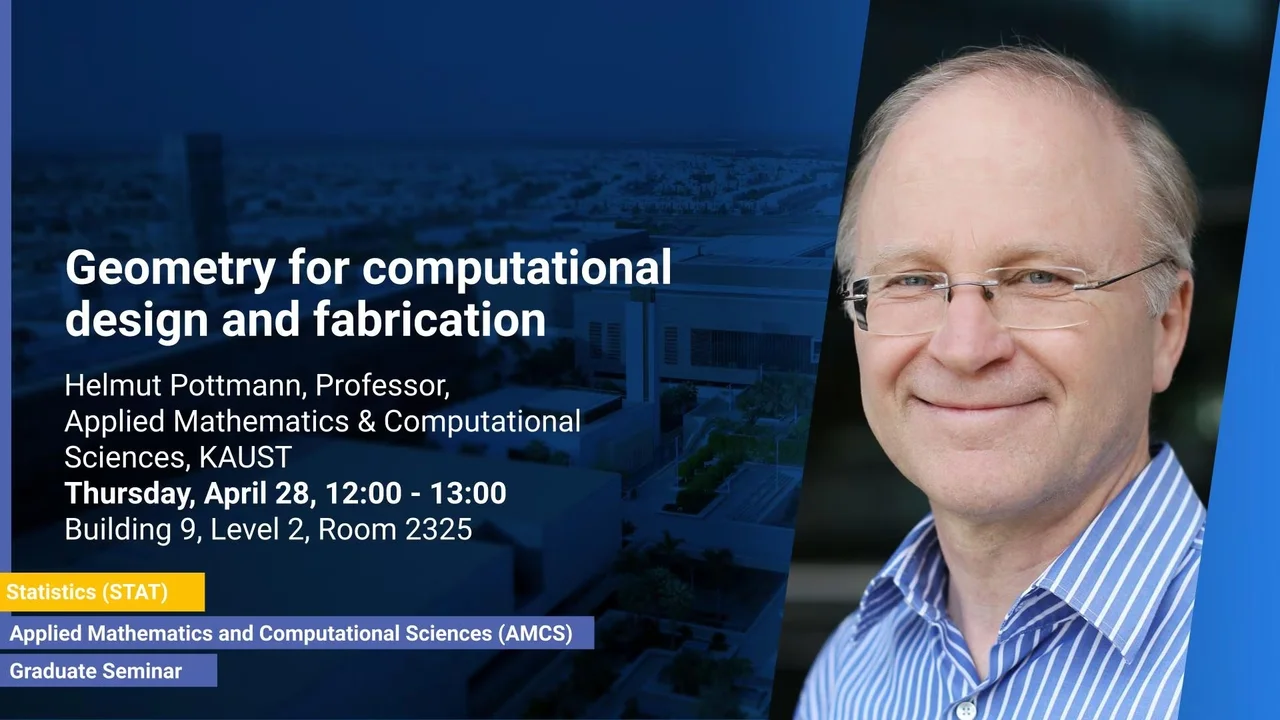
Geometry for computational design and fabrication
Geometry plays an important role in the design and fabrication of so-called freeform shapes. This talk will illustrate the fruitful interplay between theory and applications in this area. The focus will be on discrete differential geometry and on applications in architecture and fabrication-aware design.
Overview
Abstract
Geometry plays an important role in the design and fabrication of so-called freeform shapes. This talk will illustrate the fruitful interplay between theory and applications in this area. The focus will be on discrete differential geometry and on applications in architecture and fabrication-aware design. We discuss the construction of architectural freeform skins from flat, nearly rectangular panels, and associated support structures. With mathematically closely related concepts and methods one can treat computational design problems for curved origami. We finally discuss recent progress on the design and fabrication with materials which can be easily bent, but hardly stretched.
Brief Biography
Helmut Pottmann is a professor of AMCS and CS at KAUST and founding director of the Visual Computing Center (formerly Geometric Modeling and Scientific Visualization Center). He has had faculty positions in the US and in Germany and has been a Professor of Applied geometry at TU Vienna since 1992. His research interests are in Applied Geometry, Visual Computing and most recently in Geometric Computing for Architecture and Manufacturing. He is a Fellow of SIAM and received a number of awards including the Eurographics Outstanding Technical Contributions Award, the Bezier Award of the Solid Modeling Association and the John Gregory Award for fundamental contributions to geometric modeling.